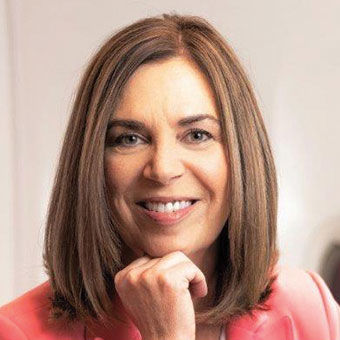
United Airlines said last week that it will stop selling domestic and short-haul Latin America basic economy fares in traditional GDS channels on Sept. 5, making them available only via NDC or direct channels. Airlines editor Robert Silk spoke with Doreen Burse, United’s senior vice president of worldwide sales, and Glenn Hollister, the carrier’s vice president of sales strategy and effectiveness, about United’s broader plan for NDC and its relationship with travel advisors.
Q: Why is United making this move?
Burse: If you think about basic economy, it’s really meant to be sold together with ancillaries. Ancillaries can’t be sold in an Edifact GDS channel. So, it was a natural next step to take. And in fact, when we look at the percent of basic economy that’s being sold, it’s very low.
Hollister: For the business travel side it’s less than one-tenth of 1%. And even when we look at leisure agencies, there are few that do a lot. Some of the larger OTA-type agencies do, but other than that there’s very little use of basic economy.
Q: In the announcement last week, you said this is the first of a series of changes that will be taking place in the coming months. Can you provide insight on those changes? Should agencies be prepared for more legacy GDS content to be removed?
Hollister: We’re not ready to announce what those future things are because we haven’t finalized it yet. But I do think we can say that it does not involve removing further content from Edifact. We have no plans at this point to do anything beyond basic economy. The future announcements are really about trying to achieve some of the other objectives we’ve laid out. There’s a couple of things that go on in different channels today. One is that the economics are very different in terms of the costs, and the other is that the costs are not necessarily well aligned with the value. We want to work toward making the channels more similar in terms of economics and the cost more aligned with the value.
Q: When you say that, I can imagine advisors will worry it could mean lower commissions or segment fees.
Hollister: This is really about distribution costs, which we don’t consider commissions.
Q: So, in other words, less money to the GDSs.
Hollister: I don’t know that I will say that. What I will say is we want to get economics more similar between channels, and there are multiple ways to do that.
Q: Will you reduce agent-facing support staff, a sensitive issue following American’s sales cuts this spring?
Burse: No.
Q: Should the agency community be concerned that their role or remuneration could dwindle?
Burse: The agency relationship and agency community is incredibly important to us. We actually have a travel agency council. There are several members that are representative of a whole host of agency types. We spend a lot of time with them understanding their business and also talking about our own business. We want to achieve our goals by supporting an omnichannel strategy that allows us to meet everyone where they want to buy. In some cases, you have a lot of clients that want to buy from agencies. We want to support that. But we also have folks that buy from us in a multitude of ways. So the distribution strategy is about saying, listen, this is a rapidly changing environment. But we’re being really transparent and upfront that we want to do business together. And we’re going to continue to find ways to do that. We’ll be transparent. We’ll be proactive. And we’ll be clear in what we’re doing moving forward.
Source: Read Full Article











